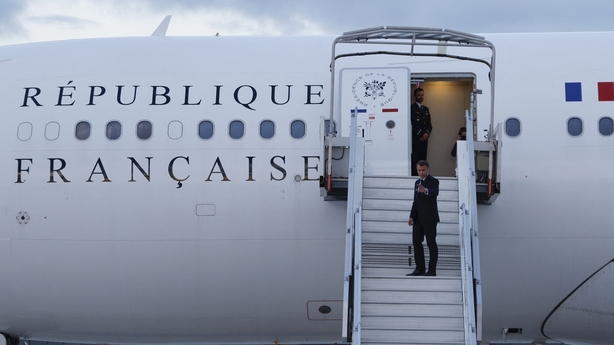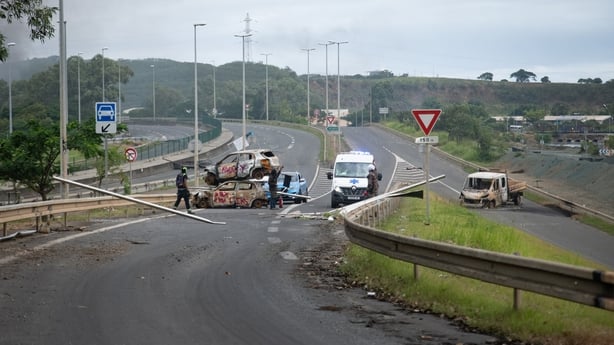French President Emmanuel Macron has landed in the Pacific island of New Caledonia, for a day of talks during which he will aim to turn the page on deadly riots triggered by a contested electoral reform.
Any attempt to convince the rioters to get off the streets will be a challenge, as will trying to persuade the French-ruled territory's pro-independence parties who blame Mr Macron and his government for the riots that he is there to help.
The protesters fear the electoral reform, already passed by lawmakers in mainland France some 20,000km away, will dilute the votes of indigenous Kanaks, who make up 40% of the island's population of 270,000 people.
As it is a constitutional reform, it requires a meeting of both houses of parliament for it to be ratified and Mr Macron has yet to announce a date for that.
"The president is there to initiate discussions which should allow a global political agreement to emerge," Prime Minister Gabriel Attal told the Senate.
"This is the only way to reach... a path of forgiveness and a path to the future."
Mr Macron, he said, will appoint a team of senior officials who will stay on the island as long as needed to help achieve that.
Aides say Mr Macron has no pre-conceived plan and will talk with all parties about reconstruction in the wake of the riots, as well as about politics, but is unlikely to rush into any major decision.
This may disappoint some local groups, including FLNKS, who want Mr Macron to shelve the electoral reform that Paris says is needed to improve democracy on the island.
The reform would allow French residents who have lived in New Caledonia for 10 years to vote in provincial elections.
Mr Macron's agenda includes meeting local elected officials as well as business leaders.
Electoral rolls were frozen in 1998 under the Noumea Accord, which ended a decade of violence and established a pathway to gradual autonomy, which critics say has now been jeopardised.
Six people have been killed in the riots, that have left a trail of looted shops and torched cars and businesses.

The French government has sent hundreds of additional police to help bring things back under control.
"The police forces go around clearing these barricades but right after that, the youths put them up again, so it's almost a cat-and-mouse game," said Jimmy Naouna, from the Front de Liberation Nationale Kanak et Socialiste (FLNKS).
The pro-independence FLNKS had called for protesters to remove roadblocks that restrict movement and food supplies in Noumea, though they continued to appear overnight, Mr Naouna told Reuters in an interview.
Much hinges on what Mr Macron will say and do during his visit.
Read more: Why are there riots in New Caledonia against France's voting reform?

France annexed New Caledonia in 1853 and gave the colony the status of overseas territory in 1946.
New Caledonia is the world's No 3 nickel miner but the sector is in crisis and one-in-five residents live below the poverty threshold.
The island is more than 16,000km from mainland France and 1,500km east of Australia.
The electoral reform would allow French residents who have lived in New Caledonia for 10 years to vote in provincial elections - a move Paris says is needed to improve democracy.

